第40章 CHAPTER XVI(1)
PROBABLY the most important historical event of the year '49 was the discovery of gold in California, or rather, the great Western Exodus in pursuit of it. A restless desire possessed me to see something of America, especially of the Far West.
I had an hereditary love of sport, and had read and heard wonderful tales of bison, and grisly bears, and wapitis. No books had so fascinated me, when a boy, as the 'Deer-slayer,' the 'Pathfinder,' and the beloved 'Last of the Mohicans.'
Here then was a new field for adventure. I would go to California, and hunt my way across the continent. Ruxton's 'Life in the Far West' inspired a belief in self-reliance and independence only rivalled by Robinson Crusoe. If I could not find a companion, I would go alone. Little did I dream of the fortune which was in store for me, or how nearly I missed carrying out the scheme so wildly contemplated, or indeed, any scheme at all.
The only friend I could meet with both willing and able to join me was the last Lord Durham. He could not undertake to go to California; but he had been to New York during his father's reign in Canada, and liked the idea of revisiting the States. He proposed that we should spend the winter in the West Indies, and after some buffalo-shooting on the plains, return to England in the autumn.
The notion of the West Indies gave rise to an off-shoot.
Both Durham and I were members of the old Garrick, then but a small club in Covent Garden. Amongst our mutual friends was Andrew Arcedeckne - pronounced Archdeacon - a character to whom attaches a peculiar literary interest, of which anon.
Arcedeckne - Archy, as he was commonly called - was about a couple of years older than we were. He was the owner of Glevering Hall, Suffolk, and nephew of Lord Huntingfield.
These particulars, as well as those of his person, are note-worthy, as it will soon appear.
Archy - 'Merry Andrew,' as I used to call him, - owned one of the finest estates in Jamaica - Golden Grove. When he heard of our intended trip, he at once volunteered to go with us.
He had never seen Golden Grove, but had often wished to visit it. Thus it came to pass that we three secured our cabins in one of the West India mailers, and left England in December 1849.
To return to our little Suffolk squire. The description of his figure, as before said, is all-important, though the world is familiar with it, as drawn by the pencil of a master caricaturist. Arcedeckne was about five feet three inches, round as a cask, with a small singularly round face and head, closely cropped hair, and large soft eyes, - in a word, so like a seal, that he was as often called 'Phoca' as Archy.
Do you recognise the portrait? Do you need the help of 'Glevering Hall' (how curious the suggestion!). And would you not like to hear him talk? Here is a specimen in his best manner. Surely it must have been taken down by a shorthand writer, or a phonograph:
MR. HARRY FOKER LOQUITUR: 'He inquired for Rincer and the cold in his nose, told Mrs. Rincer a riddle, asked Miss Rincer when she would be prepared to marry him, and paid his compliments to Miss Brett, another young lady in the bar, all in a minute of time, and with a liveliness and facetiousness which set all these young ladies in a giggle. "Have a drop, Pen: it's recommended by the faculty, &c. Give the young one a glass, R., and score it up to yours truly."'
I fancy the great man who recorded these words was more afraid of Mr. Harry PHOCA than of any other man in the Garrick Club - possibly for the reason that honest Harry was not the least bit afraid of him. The shy, the proud, the sensitive satirist would steal quietly into the room, avoiding notice as though he wished himself invisible. Phoca would be warming his back at the fire, and calling for a glass of 'Foker's own.' Seeing the giant enter, he would advance a step or two, with a couple of extended fingers, and exclaim, quite affably, 'Ha! Mr. Thackry! litary cove! Glad to see you, sir. How's Major Dobbings?' and likely enough would turn to the waiter, and bid him, 'Give this gent a glass of the same, and score it up to yours truly!' We have his biographer's word for it, that he would have winked at the Duke of Wellington, with just as little scruple.
Yes, Andrew Arcedeckne was the original of Harry Foker; and, from the cut of his clothes to his family connection, and to the comicality, the simplicity, the sweetness of temper (though hardly doing justice to the loveableness of the little man), the famous caricature fits him to a T.
The night before we left London we had a convivial dinner at the Garrick - we three travellers, with Albert Smith, his brother, and John Leech. It was a merry party, to which all contributed good fellowship and innocent jokes. The latest arrival at the Zoo was the first hippopotamus that had reached England, - a present from the Khedive. Someone wondered how it had been caught. I suggested a trout-fly; which so tickled John Leech's fancy that he promised to draw it for next week's 'Punch.' Albert Smith went with us to Southampton to see us off.